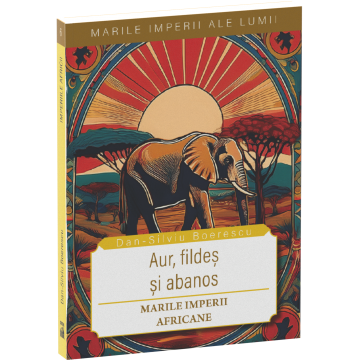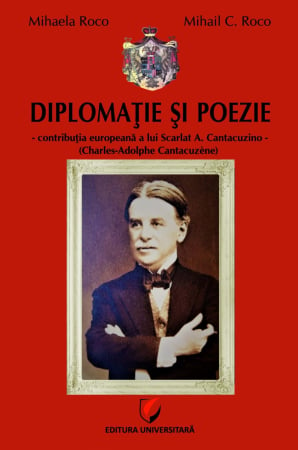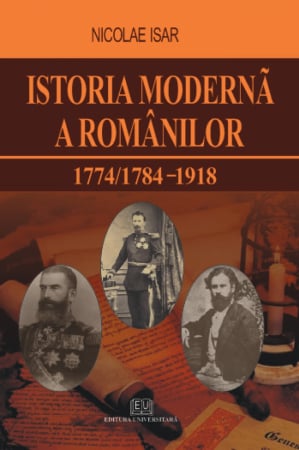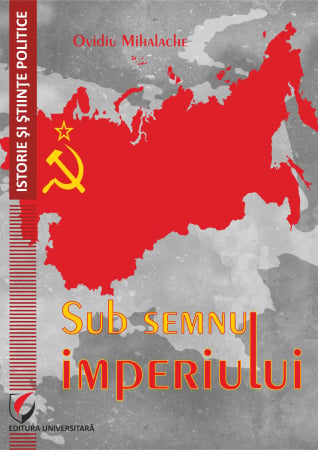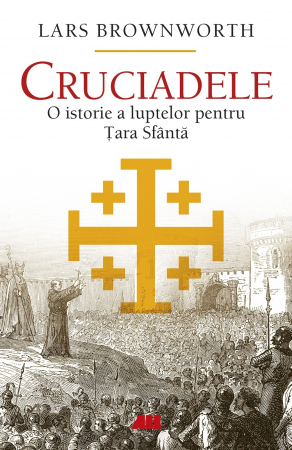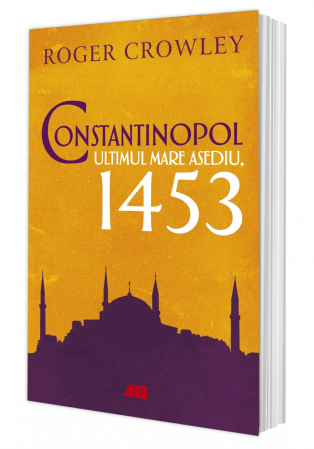ISBN: 978-606-28-0444-2
DOI: 10.5682/9786062804442
Publisher year: 2016
Edition: I
Pages: 194
Publisher: Editura Universitară
Author: Nicolae Isar
- Description
- Download (1)
- Authors
- Content
- More details
- Reviews (0)
This volume, with its collection, we hope will be useful to historians of Romanian law and exegetes of the history of socio-political thought, as well as to a wider audience of readers, eager to know the traditions of Romanian legal law and the role of the first great Romanian jurists in the achievement of a fundamental desideratum of the Romans in the middle of the 19th century, such as that of the Union of Principalities.
-
FONDATORII SCOLII ROMANE DE DREPT. Cuvantari si scrieri premergatoare Unirii Principatelor (1851–1859)
Download
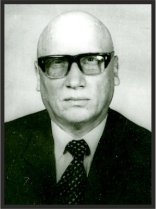
University Proffesor Doctor NICOLAE ISAR was born in 1937, in the town of Slanic-Prahova. Graduate of the Faculty of History of the University of Bucharest in 1962, then teacher in this faculty, going through all university levels, from preparator to full professor (in 1995). Doctor in history since 1973, doctoral supervisor since 1997. Consultant professor since October 2007.
Specialist in the modern history of Romanians, having as priority research directions the history of education and culture, the history of institutions, etc.
He is the laureate of two scientific awards of the Romanian Academy: “N. Iorga ”, 1985; "N. Balcescu ”, 1993.
He has published over 50 books and over 100 studies in journals. Among the books we mention:
- French publicists and the Romanian cause (1834-1859), 1991 ("N. Balcescu" Prize of the Romanian Academy for 1993);
- National School of St. Sava and the spirit of the time (1818-1859), 1994;
- The Romanian Principalities in the Age of Enlightenment (1770-1830), 1999 and 2005;
- Under the sign of romance. From the ruler Gh. Bibescu to the writer Simeon Marcovici, 2003;
- National culture and European spirit. From Gheorghe Lazar's school to the University of Bucharest (1818-1864), 2004, 2014;
- French testimonies and concerns about Romanians. XVIII-XIX centuries, 2005;
- From the history of the generation from 1848. Revolution, exile, historical destiny, 2006;
- Modern history of the Romanians (1774 / 1784-1918), 2006;
- Under the sign of the Lights. Figures from the era of 1821, 2006;
- The doctrine and the junimist-conservative legislation in the debates of the Romanian Parliament (1891-1895), 2007;
- Nicolae Iorga in defense of the memory of the ruler Alexandru Ioan Cuza, 2007;
- The revolution of 1848 in the Romanian Lands. With a study on the personality of N. Balcescu in his vision N. Iorga, 2008;
- From the political history of the Romanian Principalities. De la Fanarioti la Domniile nationale (1774-1829), 2008;
- From orthodoxy to national revival. The life and work of Eufrosin Poteca (1787-1858), 2008;
- Great Romanians in the vision of Nicolae Iorga, 2009;
- Romania under the sign of modernization. From Alexandru Ioan Cuza to Carol I (1859-1914), 2010, 2017;
- The memory of the Pasoptist exile. Alexandru Christofi in correspondence with Christian Tell (1852-1856), 2010;
- A history of the Roman Principalities. From political emancipation to the Union (1769-1859), 2010, 2016;
- Christian education and morals. The life and work of Simeon Marcovici (1802-1877), 2010;
- Emancipation and modernization of the Romans (1848-1918). Historical studies and readings, 2012;
- School and the Church in the Romanian society (1800-1914) - Studies -, 2012.
- 1848 in Tarile Romane. - Studies, 2013;
- 1821. The revolution and the spirit of the time. Synthesis and studies, 2013;
- From the history of Romanian social-political thinking (XVII-XIX centuries). Studies, 2013;
- Church-State-Society in modern Romania (1821-1914) - Synthesis and collection of documents, 2014;
- The founders of the Romanian law school. Speeches and writings prior to the Union of Principalities (1851–1859), 2016;
- From Eminescu to Nicolae Iorga. In defense of the memory of Prince Al. I. Cuza and M. Kogalniceanu, 2016;
- Gheorghe Panu, promoter of modernization. Speeches in the Romanian Senate (1892-1895), 2016;
- Prince Gh. Bibescu - Travel and "working visits", 2016;
- The Pasoptist era in French testimonies. Studies, 2017;
- The model of the apostolate. Teachers from "St. Sava”, 2017;
- Romanian-French relations and interferences in the Age of Enlightenment (1769-1834). Studies, 2017;
- Historical evocations. 1821-1918, 2018;
- Gheorghe Lazar and his school in memorable evocations, 2018;
- Nicolae Balcescu - The spiritual evolution of a great novel - with comments on his correspondence and writings, 2019.
- Important personalities in the vision of Nicolae Iorga. From Gheorghe Lazar to Mihail Kogalniceanu, 2019.
Introduction. The science of law in the National School from Sf. Sava in Bucharest (1818-1859) / 5-14
Section A
Speeches, inaugural lessons
1. The speech delivered by the Director of National Schools, C. Bosianu, on the occasion of the awards ceremony for the school year 1851–1852 / 15-18
2. The word said by the Director of the schools, C. Bosianu, at the general exam on the occasion of the distribution of the prizes of the school year 1852-1853 / 19-22
3. "Precuvantarea" of George Costaforu, at the opening of the Romanian civil law course from Sf. Sava from 15 nov. 1851 / 23-25
4. The word of the Director of schools, George Costaforu, on the occasion of the inauguration of the “Romanian Academy” [the premises of the future University of Bucharest: October 1857] / 25-27
5. Speech by the Director of Schools G. Costaforu, on the occasion of the awards ceremony (school year 1857-1858) / 27-35
Section B
Studies in public law and international law
I. George Costaforu, Extracts from the “Judicial Store” volume I, Bucharest, 1855) / 37-54
1. Precuvantare / 37-39
2. On Law and Justice (pp. 9–25) / 39-50
3. Principles of public and administrative law / 51-54
II. Vasile Boerescu, Romania after the Treaty of Paris of March 30, 1856 (Paris, 1857) / 55-61
1. Excerpts from the introduction signed by Royer Collard / 55-58
2. Excerpt from Chapter I. On the public political law of Moldova-Romania (pp. 12-17) / 58-61
III. Vasile Boerescu - Representative system / 62-91
Section C
Vasile Boerescu - Studies on education reform
I. Reforms. Public instruction / 93-133
II. Observations on the plan of the St. Sava Academy [April 1858] / 134-142
Section D
In the service of the union of the Principalities Unionist press articles
1. C. Bosianu, Feature article, from “Romania”, on the mission of the Ad-hoc Divan (1857) / 143-144
2. C. Bosianu, Background article, from “Romania” (1857) / 144-146
3. C. Bosianu, Feature article from “Romania”, calling for the union of social classes (1857) / 147-148
4. G. Costaforu, Natiunea si privilegiatii (1857) / 148-151
5. G. Costaforu, Occasions of the day (1857) / 151-154
6. G. Costaforu, The Common Interest and Personalities (1857) / 154-156
7. G. Costaforu, And the nation answered (1857) / 156-162
8. The characterization made to G. Costaforu by the editorial office of the newspaper Secolul ”, accompanied by the“ profession of faith ”to the voters (1857)
9. G. Costaforu, The Nation, and not the parties (1858) / 165-168
10. V. Boerescu, European Guarantee (1858) / 168-171
11. V. Boerescu, Junimea romana (1858) / 171-174
12. V. Boerescu, Viitoarele reforme (1858) / 175-178
13. V. Boerescu, Commentary on the Necessity of Moral Reforms (1858) / 178-182
14. V. Boerescu, Parties (1858) / 182-184
15. V. Boerescu, Legalitatea (1858) / 184-187
16. V. Boerescu, The present state (1858) / 187-191
17. V. Boerescu's speech at the meeting of January 24, 1859 for the election of the Lord / 191-192
As it is known, since its founding in 1818, under the leadership of the Transylvanian scholar, Gheorghe Lazar, the national school of St. Sava has become a true center of national culture and education, and its teachers, from one generation to another , for the most part, they were not only valuable scholars, promoters of the national school and culture, but at the same time, they offered living models of civic employment, of involvement in supporting the aspirations of the Romanian society.
The science of law and his teaching in the school of St. Sava had entered a decisive stage in 1825, with the employment as a teacher of Costache Moroiu, returned this time from Pisa, with the title of doctor of law. However, we lack a series of details regarding his activity from the immediately following years, until 1828, during the school's leadership by the philosophy teacher Eufrosin Poteca. As the first law teacher with a higher education in the school, he will face serious difficulties, because, as Petrache Poenaru would mention, he "did not have students prepared for this science with preliminary teachings". But, gradually, "through the wise disposition of the course he proposed, year after year, he would impose in the school the value of law disciplines, starting with Romanian law, guiding in this direction the first series of apprentices".
A little later, after the reorganization of the school - henceforth, the College - based on the principles promoted by the Organic Regulation, Costache Moroiu would introduce between the disciplines of law: criminal law and commercial law, with the help of several other young people studying abroad. Especially since December 1837, at the proposal of Barbu Stirbei, who became the great logopath of Justice, two other departments of commercial law and judicial procedure were established within the College. In a short time, in January 1838, this time on the initiative of Eforia scolilor, a fourth, of Romanian civil law, was added to the three existing departments. In fact, through the diary of January 31, 1838, to which we refer, Eforia had decided the following structure by classes: I - Romanian law; II - Romanian civil law; III - criminal record; IV - procedure and criminal law (criminal) .4 Based on this decision, starting from October 1, 1838, were appointed as holders of these departments several well-known lawyers, also with studies in the West: Stefan Ferechide, civil law, Constantin Brailoiu, on criminal law and procedure, Al. Racovita, commercial law.
For the instructive-educational activity in the College, in the conditions of an obvious affluence of the youth, an important role was played by the system of scholarships granted by Eforie to the students. For the future of the valuable young people, graduates of the College, important, with implications on the evolution of the national culture, were to be the scholarships for studies abroad, granted on the basis of a competition. With the help of these scholarships, as in the third decade Costache Moroiu, Eufrosin Poteca, Simeon Marcovici, Petrache Poenaru had succeeded, also in the period immediately preceding the revolution of 1848, a series of valuable young people managed to receive such scholarships, who later became prestigious professors of the College. Thus, after benefiting from scholarships as internal students, in 1845, with Eforia scholarships, George Costaforu and Ioan Zalomit went to study in Paris, and in 1846, Constantin Bosianu and Alexe Marin, all graduates of the College of St. Sava and trained in the spirit of this school. Among them, G. Costaforu and C. Bosianu are studying law, and will receive their doctorate, while I. Zalomit specializes in philosophy, and will later cover, at the highest level, as a professor in the College. and then in the University, this important field of humanities.
To the two scholarship holders following the specialization in Paris in the field of law, G. Costaforu and C. Bosianu, in a few years, a third scholarship holder will be added, a little younger than his age, Vasile Boerescu, and he will take his doctorate in law and to become one of the illustrious law professors of the College and then of the Faculty of Law. These three will be truly founders of the Law School in Bucharest and, respectively, of the Faculty of Law, which will be one of the most important faculties of the University of Bucharest. As we have seen, Constantin Moroiu, a doctor of law from Pisa, had preceded him in asserting the science of law, but he (who died in 1847) was not allowed to go through the decisive stage of establishing an independent institution of the science of law.
Although, referring to the three, we have in mind here a presentation of the writings written by them in the run-up to the Union of Principalities - legal and socio-political writings - it is worth noting some data on their biography and activity until 1859. George Costaforu. He was born in Bucharest in the autumn of 1820, in a modest family as a social and intellectual position (father, merchant, participant in the revolution of 1821). Leading student of the College, due to material difficulties, he was forced at one point to hold, in parallel, a small administrative job (assistant secretary, and then clerk in the Ilfov County Court). Leaving for Paris in November 1845, he enrolled in the Faculty of Law, in accordance with the rules of the French education system, and will first defend his baccalaureate in law, then his bachelor 's degree, and finally his doctorate. In Paris, during the revolution of 1848, although he formally adhered to the aspirations of the revolutionary youth studying in the French capital (he was enrolled in the Society of Romanian Students), he kept away from the actual political manifestations, emphasizing his studies. By the consistency with which he understood himself to devote himself to the realization of a thorough program of studies, he would arouse the envy, but also the admiration, of a compatriot who was also in Paris at this time, an enthusiastic revolutionary, such as C.A. Rosetti.
Although in 1848, after the repression of the revolution in Wallachia, for a short time, the students' scholarships in Paris were interrupted, G. Costaforu and C. Bosianu continued their studies, finally completing them. Thus, Costaforu defended his doctorate in August 1850, with a thesis elaborated in two parts, in Latin and French. After this date, he returned to Bucharest, at a time when the College's courses had been interrupted, following the double Turkish-Russian military intervention. The activities of the College are resumed in November 1851, when, this time, following the reform of the ruler Barbu Stirbei, the law courses are resumed within an autonomous division, entitled Law School.
In this context, on November 16/28, 1851, G. Costaforu was hired to teach Romanian civil law, the inauguration of the course giving the opportunity to support the well-known pre-question, which I publish in this volume.
Constantin Bosianu. He was a little older than Costaforu, because he was born in 1815. In Paris, as I noticed, he went a year later, in 1846, after, previously, many years, due to the precarious material conditions, he had held a small position. in administration. He followed in Paris the natural sequence of studies, first the baccalaureate in letters at the Sorbonne (from which G. Costaforu had been dispensed!), Then the baccalaureate in law, the law degree in 1849, and finally the doctorate in 1850-1851, defending his doctoral thesis relative to the same date with Costaforu. Returning to the country, at a relatively identical date, he was appointed as a law professor in the College. However, Bosianu came to the fore, in January 1852, when, as a close associate of the ruler Barbu Stirbei, he was appointed director of the Eforia of schools, instead of Simeon Marcovici, this important position cumulating that of director of the College. As director of Eforia, succeeding his colleague, G. Costaforu will arrive in several years, in December 1856, in the position of close friend of caimacam Al. Ghica, who had taken over the leadership of Wallachia after the end of Barbu Stirbei's reign.
We owe to the positions of C. Bosianu and G. Costaforu, directors of Eforia schools, an important series of speeches - some real annual reports on the situation of education -, which we reproduce in this volume.
Let us mention here that, besides the activity at the department and in the important administrative positions they held in education, the two were enthusiastically involved in the years 1857-1859 in the fight for the Union of the Principalities, occupying important public positions within this fight.
The two we referred to here, G. Costaforu and C. Bosianu, remained for several years the main law teachers at St. Sava, sharing their teaching of basic subjects. This situation lasted until the autumn of 1857, when Vasile Boerescu returned to the country, after studying law in Paris, thus completing the group of three of the main founders of the Romanian School of Law in Bucharest. The relationship between these personalities will continue after this date in terms of administrative activities, from September 1, 1858, the position of director of Eforia, instead of G. Costaforu, returning to Vasile Boerescu, with whom we will enter the years of Alexandru Ioan Cuza.
Vasile Boerescu. He was appreciably younger than the two, as he was born on December 1, 1830 in Bucharest. As a young man aged 18, he became involved in the revolution of 1848 in Tara Romaneasca, after this date, in the years 1851-1852, he was initiated in the study of law, as one who attends in the country the courses held by G. Costaforu and G. Bosianu. He also managed to go to Paris for studies in 1852, with the financial help of a family friend (Ion Hagi Tudorache). In August 1855, he successfully defended his bachelor's degree in law, and in the next two years he prepared his doctorate, in August 1857, defending a doctoral thesis entitled Traité comparatif des délits et des peines au point de vue philosophique et juridique.
As noted, he attended courses in Paris other than law, improving his knowledge in the fields of history, philosophy and economics.
In parallel with the preparation of law, in these years, his involvement in the patriotic movement that would lead to the Union of the Principalities was remarkable. He will be enthusiastically involved in this movement, as one who since 1848, as we have seen, asserts his adherence to the spirit of this movement, later participating in the activities of Roman emigration from Paris and establishing links with Italian revolutionaries, leaders of the Risorgimento. An important role was played by him in the Romanian propaganda action during the preparation and development of the Paris Peace Congress in the spring of 1856 - a propaganda meant to inform diplomacy, but also Western public opinion on Romanian aspirations for emancipation and national unity.
In this context, in February 1856, he wrote his first more important political writing, Mémoire sur la question politique et economique de la Moldavie, in which he pleaded for the constitution of the national state; In the form of a pamphlet, this memoir was distributed to foreign diplomats at Congress and was also sent to the editors of foreign newspapers, including in England ("Morning Advertiser").
Also in Paris, after the closing of the Congress, he published the pamphlet La Roumanie après le traité de Paris of March 30, 1856, prefaced by the well-known French jurist and politician Royer Collard - an important writing in the work of V. Boerescu, a fragment of which will also appear in our anthology. Also in Paris, in February 1857, V. Boerescu published the pamphlet Le firman turc pour la convocation des Divans ad-hoc dans les Principautés du Danube, with critical comments on the content of this political act.
Vasile Boerescu's political activity enters a new stage with his return to the country, from the autumn of 1857 he was employed to teach commercial law in the College of St. Sava, and will carry out his activity for years. together with Gheorghe Costaforu and Constantin Bosianu, asserting himself as one of the main founders of the Law School in Bucharest.
Vasile Boerescu will be given, with the founding of his newspaper "Nationalul", to carry out a remarkable political activity in the years preceding the Union of Principalities, in close connection with it having to elaborate numerous writings aimed at organizing the future national state, as well as a real reform of Romanian education in a modern spirit. To shorten this presentation it is necessary to mention here that about the national school from St. Sava under the leadership of Gheorghe Lazar and then, in the following decades, under his successors, I. Heliade-Radulescu, E. Poteca, Petrache Poenaru, until In the epoch of 1848 and of the Union, as well as about its well-known teachers, numerous studies were elaborated highlighting the role of this institution and its teachers in the Romanian culture and in the Romanian public consciousness.
First of all, about the beginnings of legal education in the school from Sf. Sava and about the first law teachers, the researches of the well-known historian of Romanian law, Andrei Radulescu, remain remarkable, his contributions being gathered in a volume, published some time ago. Also, contributions have brought over time other reputable historians and lawyers, revealing important aspects of the activity and work of the founders of the Romanian law school.
On some important aspects of the school from St. Sava, of the activity and work of its teachers, we dealt with ourselves in a recently republished paper, on the occasion of the anniversary of the University of Bucharest, National Culture and European Spirit. From Gh. Lazar's School at the University of Bucharest (1818-1864), the second revised edition, published by the University of Bucharest Publishing House.
Here we have references to the activity and work of the three great jurists - G. Costaforu, C. Bosianu, V. Boerescu -, rendering in full or fragmentary some of their speeches given as directors of Eforia schools in Wallachia. Also, in the cited paper I commented on their writings in the field of public and international law as well as the organization of education.
Finally, in other works of ours, from their journalism, in support of the Union of Principalities, we have fully reproduced numerous texts or made extensive comments.
But this time we found it interesting to come, in addition to previous works, with a collection reproducing in a more systematic and, as far as possible, in full, the main texts of these leaders of Romanian legal education, highlighting, more clearly, their position as exegetes of law, but also as true socio-political thinkers, as well as their remarkable contribution to the achievement of the Union of Principalities.
Among other things, we reproduce in this collection excerpts from the first Romanian legal newspaper "Judicial Magazine", founded by G. Costaforu in 1855, excerpts from the work of international law of V. Boerescu from 1857, limited to the struggle for the Union of Principalities and, more chosen, we publish here in its entirety his study, partly unknown, The Representative System, although published in series in the newspaper "Nationalul", it is one of the first studies in our legal literature dedicated to the rule of law and of particular interest under this angle of view.
Next, we publish in full in this collection the study of V. Boerescu, Public Instruction, dedicated to the future organization of Romanian education, published in series in the same newspaper. It is a study that remains little known in the literature, but very important, as one that reveals the remarkable contribution of V. Boerescu to the organization of education in the conditions of the modern Romanian state.
Finally, it was necessary to reproduce in this volume the journalism of the three great jurists in direct support of the struggle for the Union, a work of political journalism to which I referred in the paper quoted above, which, as I noted, I commented in other works.
Inevitably, we could not fail to republish this part of the work of the three scholars in a collection that wants to provide, to some extent, an overview of their writings prior to the Union of Principalities.
As can be seen from these writings, the civic engagement of the three, in a span of only a few years, was total, they provide in this sense a model for the generations of lawyers who will succeed each other over time in the history of law. Romanian legal system, to this day.
It is a model that should be reflected by some enthusiasts "followers" of the rule of law today.
Of course, in the spirit of the activity from the years preceding the Union of the Principalities, the activity of the three great jurists will take place in the following period, during the reigns of Al. John Cuza and Carol I, when they will continue to hold important positions in public life. By the end of their lives, in general, they will prove consistent on the line of an authentic patriotism, asserted with vigor in the years of the struggle for the Union of the Principalities.
In any case, we hope that this volume, with the collection it contains, in addition to our previous studies, will be useful to historians of Romanian law and exegetes of the history of socio-political thought, as well as to a wider audience of readers, eager to know the traditions. Romanian legal law, as well as the role of the first great Romanian jurists in achieving a fundamental desideratum of the Romanians in the middle of the 19th century, such as that of the Union of Principalities.

6359.png)
![Romanian Law School Foundation. Speeches and Letters prior Principalities Union (1851-1859) [1] Romanian Law School Foundation. Speeches and Letters prior Principalities Union (1851-1859) [1]](https://gomagcdn.ro/domains/editurauniversitara.ro/files/product/large/fondatorii-scolii-romane-de-drept-cuvantari-si-scrieri-premergatoare-unirii-principatelor-1851-1859-597-201399.jpg)


